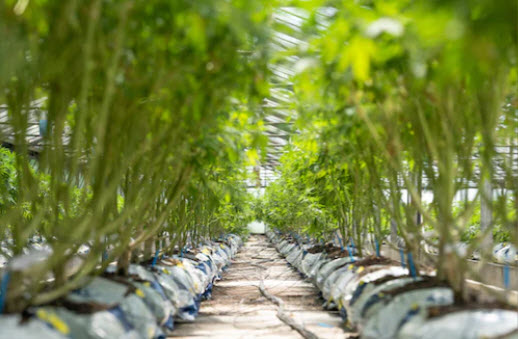In a live-streamed press conference, the federal Health Minister presented key points for cannabis legalization that the government has now agreed to – but what challenges remain?
New details about cannabis legalization in Germany have emerged over the last 24 hours.
Last night, the Rheinischer Post reported that as expected, Karl Lauterbach would hold a press conference today outlining key points of the framework of the legislation – not the legislation itself that the federal government has agreed to. This is largely based, as expected, on the “leaked” information released last week – almost certainly released to prime the pump, defer any large objections including from the business community and in response to the federal court decision on the THC limits in hemp flower.
Today, the Sud Deutsch Zeitung posted the live stream conference held by Lauterbach on developments. Other German language press outlets are now reporting the details.
According to Lauterbach, a concrete draft law would only be released when it is clear there are no valid legal arguments against cannabis reform at an EU level. He also expects the legal market in Germany to begin by 2024, although nothing is entirely certain at this point.
Lauterbach said that the government was concerned with decriminalization as well as better child, youth, and health protection.
“We want to create clarity, if this law were to come to pass, it would be the most liberal cannabis liberalization project in Europe,” Lauterbach said. He also stressed however that the legislation would define “narrow limits” and that the market would be strictly regulated to prevent youth access.
An Overview of the Details
Here are the major points of Lauterbach’s briefing.
- Cannabis and the active ingredient THC would no longer be legally classified as “narcotics.” This is a very big step both on the medical and recreational side. It would allow general practitioners to prescribe the drug. It would also mean that people could not be charged as criminals for mere possession.
- The acquisition and possession of up to 30 grams for “recreational” purposes would no longer be a crime, no matter the THC content of the same.
- A THC limit on legal sales should be discarded because of the burden on law enforcement and prosecution.
- Private self-cultivation would be allowed for three flowering cannabis plants per adult as long as this cultivation is kept out of the reach of children and young people. This is a marked uptick in the number of plants mentioned last week in the “leak.” At that time, it was reported that the government would allow only two plants for home cultivation. Further, the distinction of “flowering” vs “mother” plants is a distinction that may not be fully delineated in legislation but rather would be litigated.
- “Trading” cannabis without a license would still be punishable.
- The quantity of sales per customer may be limited.
- Online and mail order sales will at least initially be prohibited
- It is still uncertain what the government intends to do about THC limits for buyers under 21.
- Both sales tax and a “THC tax” will potentially be levelled on higher THC products.
- Legal cannabis, with all taxes included is intended to be sold at a price which “comes close” to black market prices. That is currently between 6-10 euros a gram.
- The market will not be limited to flower, but will include capsules, sprays, and drops. Edibles that contain cannabis will initially not be allowed. This is a more nuanced definition that has so far been released.
- Education programs will be expanded.
- Data on the social impact of legalization will be collected and analysed for four years. At this point, regulations will be evaluated for their impact on child protection, health, and road safety.
- Germany will accept and normalize EU regulations on .3% THC in hemp, which also means that the federal case against those selling .2% THC flower will essentially be nullified. In the meantime, however this does nothing for the hemp flower market, which remains in limbo until at least the passage of the legislation if not the actual implementation of the same.
- Those who have been prosecuted and those who are in the midst of being prosecuted for possession will have charges dropped by the government. This is a major step, which also means that anyone who has a pending action against them for possession will be exonerated by passage of the bill. It is unclear what this will mean for those with charges against them for unlawful trading.
- There was no discussion of where recreational cannabis can be sourced from. This remains a big deal in the industry, particularly between those who are currently sourcing medical cananbis from abroad and those who have cultivation licenses for medical cannabis.
The largest opposition against the legislation has been from CDU/CSU affiliated politicians in Bavaria who have repeatedly and loudly pushed back on the government’s plans to legalize the drug.
“The legalization plans of the federal government represent a dangerous signal not only for Germany, but also for the whole of Europe,” Health Minister Klaus Holetschek (CSU) told the Augsburger Allgemeine. “Cannabis has a powerful mood and perception-altering effect,” he warns. The consumption entails “significant and partly irreversible health and social risks”.
Holetschek also said that he hoped the government would prevent cannabis tourism.
What Comes Next?
It is clear that the government is moving slowly, carefully, and open to comments from the industry. It is also clear that the “leak” last week was almost certainly planned to gain initial feedback. Indeed, it is clear that some of the details of the same have been changed
Beyond this, it is also clear that the government is sending signals both domestically and internationally that it is not intending to proceed without a multi-lateral coalition behind it – almost certainly including other EU countries that include Luxembourg, Malta and almost certainly the Czech Republic.
There are no surprises with a 2024 start date, no matter how much vested interests here want to promote “reform” that comes as soon as next year. In addition, this says nothing about those who have been prosecuted, including over the past two weeks, for sales of CBD flower under .2%. It is likely that these prosecutions will be dropped and those prosecuted for the same will also be allowed to clear their records.










[…] an EU-wide ruling that is bound to have a ripple effect on both cannabis legalization as well as immigration for the purposes of medical cannabis treatment, the European Court of […]